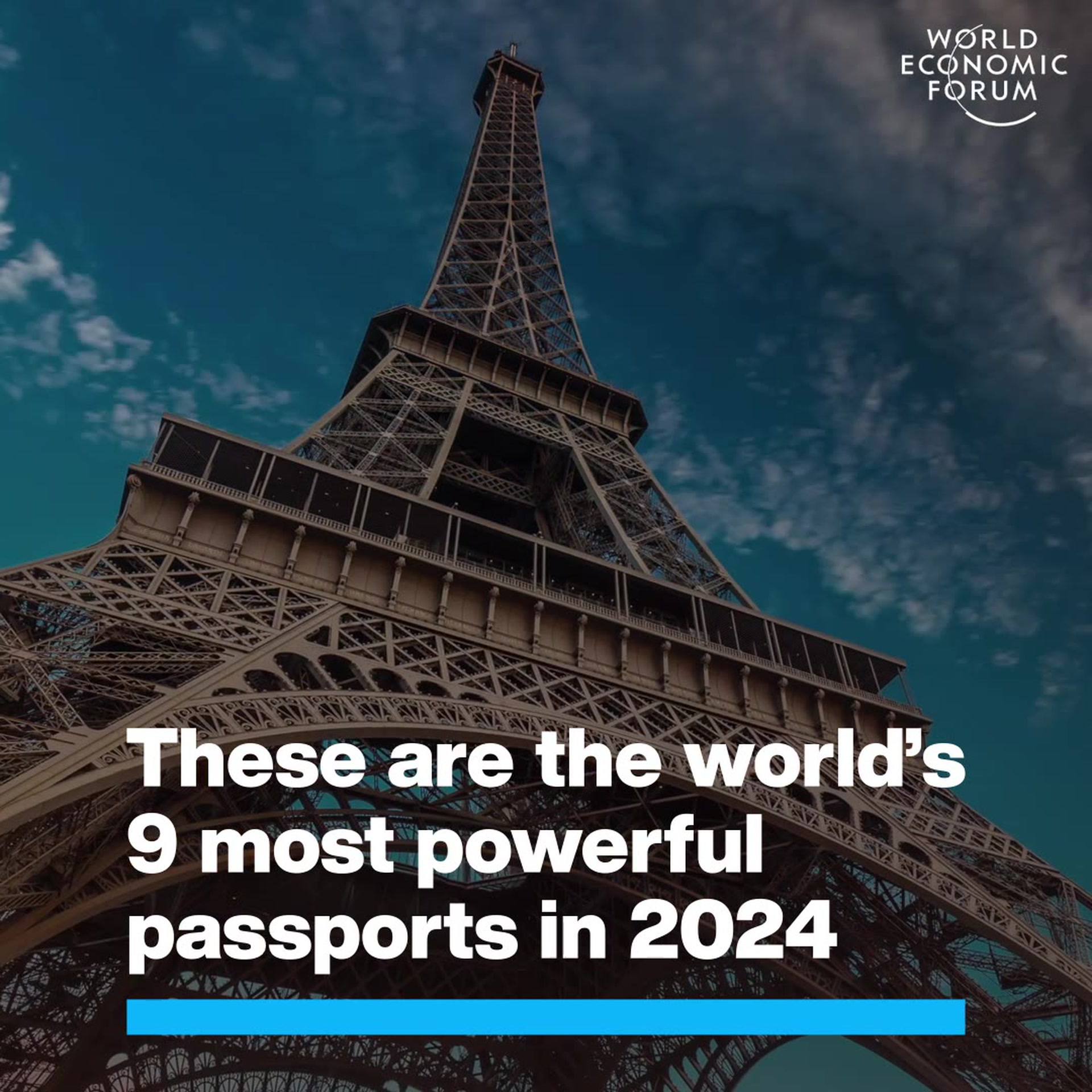Why getting rid of paper passports might be good for business

Some experts suggest the passport has become an instrument of exclusion. Image: Unsplash/ CardMapr.nl

Get involved with our crowdsourced digital platform to deliver impact at scale
Stay up to date:
Travel and Tourism
- The paper-based passport has been criticised by some experts as an instrument of exclusion.
- Some countries with the greatest number of highly educated emigrants—India, China, and the Philippines—have some of the most travel-restrictive passports.
- Digitizing passports could improve efficiency and lower costs, while boosting cross-border travel and helping tackle labour shortages.
The standard template for passports was created more than a century ago—and many argue that it’s due for a major rethink. Economists and open-border advocates point out that tethering one’s prospects to a paper-based travel document, one originally meant to expedite queues at European train stations, has proven to be inefficient, costly, and ultimately inequitable.
Karoli Hindriks, CEO of the Estonian immigration and relocation tech company Jobbatical, is an ardent critic of the passport paper trail. “The modern passport was designed by a Western-centric organization after the First World War. It became the object of freedom for advantaged, mostly western countries but a burden for others,” she said at a TED conference held in Monterey, California, in early August. “The irony is that today the passport doesn’t even help those Western economies.”
Instead of promoting mobility across nations, Hindriks suggests, the passport has become an instrument of exclusion. She notes that the countries with the greatest number of highly educated emigrants—India, China, and the Philippines—have some of the most travel-restrictive passports.
How to fix such a murky, politically-fraught problem? Hindriks says it starts with getting rid of onerous paper-based passport procedures. For one, digitizing IDs has proven to yield significant cost savings, she says. For instance, Estonia’s chief information officer reported that the country saved the equivalent of 2% of its GDP simply by adopting e-signatures. Similarly, the Berlin Immigration Office proved that it could shorten processing times for applications from three months to three days if it digitized its processes.
Seeing a connection between passports and worker shortages
Ultimately, Hindriks contends that underscoring the economic advantages of seamless cross-border movement paves the way for social change. “I do believe that simplifying the bureaucracy could lead to immigration reform,” Hindriks tells Quartz. “I also believe that this change will happen soon as countries who are actively working on talent attraction strategies realize that immigration is one of the biggest friction points in that process.”
“We are in the biggest talent shortage in human history and it will only get worse,” Hindriks says. “Companies and governments are starting to feel it now, but everybody will be feeling it by 2030,” she says, referencing an oft-cited 2018 forecast by the management consulting firm Korn Ferry, which predicted that the world would have 85 million vacant jobs by 2030 because of a lack of skilled workers available for the roles.
Hurdles to passport reform
Countries like Australia and Singapore have already adopted smartphone-based e-passports to a certain degree. The confusion over Covid-19 vaccine passports leads some experts to believe that more countries will be ready to adopt digital credentials. But why haven’t we been able to totally ditch the century-old paper booklets yet?
Nationalism and nostalgia are barriers, Hindriks says. “There’s always an uproar any time you touch national symbols like currency or passports,” she explains. “Someone told me that they liked their passport because of all stamps, like it was a photo album [of their journeys]. I get it, but this doesn’t mean that we should travel like this.” She also believes that with any innovation, people need time to go through the cycle of adoption.
Having worked with several companies and heads of state over the past year, Hindriks believes that the tipping point is just on the horizon. She contends it will take just one nation to show the rest of the world that digitizing passports can be done securely and equitably. “I see governments are trying to figure out how to win in this battle for talent,” she says. “We just need the first country to enable the integration and I think others will follow fast.”
Don't miss any update on this topic
Create a free account and access your personalized content collection with our latest publications and analyses.
License and Republishing
World Economic Forum articles may be republished in accordance with the Creative Commons Attribution-NonCommercial-NoDerivatives 4.0 International Public License, and in accordance with our Terms of Use.
The views expressed in this article are those of the author alone and not the World Economic Forum.
Related topics:
The Agenda Weekly
A weekly update of the most important issues driving the global agenda
You can unsubscribe at any time using the link in our emails. For more details, review our privacy policy.
More on Travel and TourismSee all
Naoko Tochibayashi and Naoko Kutty
March 28, 2024
Abeer Al Akel and Maimunah Mohd Sharif
February 15, 2024
Priya Singh
February 8, 2024
Thea de Gallier
January 31, 2024







